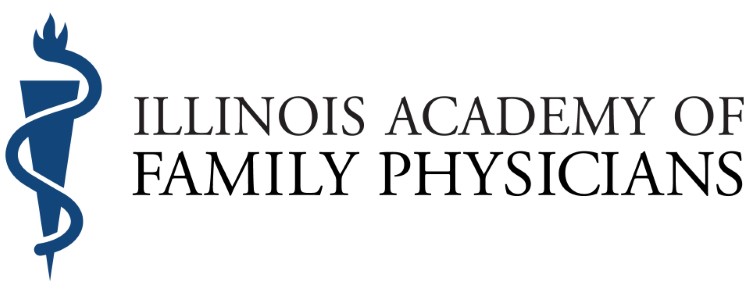IAFP Testimony in support of SB 668
Javette C. Orgain, MD, MPH, FAAFP – Past-President
November 13, 2019
 Good afternoon, President Cullerton and members of the Senate Executive committee. I am Dr. Javette Orgain from Chicago and I am testifying as a past president of the Illinois Academy of Family Physicians, with over 5,000 members throughout the state. Good afternoon, President Cullerton and members of the Senate Executive committee. I am Dr. Javette Orgain from Chicago and I am testifying as a past president of the Illinois Academy of Family Physicians, with over 5,000 members throughout the state.
We have a deadly problem spreading throughout our schools, playgrounds, locker rooms and neighborhoods. Our kids are falling victim to an emerging and dangerous addiction. We as a community didn’t fully anticipate the widespread infiltration of electronic cigarettes, and the ability of youth to hide them from parents, teachers and coaches.
Now we have an addiction problem. Now we have an outbreak of respiratory illness linked directly to using some form of these nicotine delivery devices. These devices are emerging as another tool of addiction to a chemical – nicotine- that negatively impacts brain development. We need to reverse this trend.
One of the most urgent policies we can enact now is a total ban on all flavors, including mint and menthol, to remove any attraction for these harmful and addictive products.
Mint and menthol products have been specifically marketed to the black community for decades. Our physician members in those communities will tell you – menthol is what got our patients started and keeps then addicted. Vaping manufacturers use the same playbook today. In 2019, 64 percent of high school e-cigarette users reported a preference for mint, menthol or fruit flavors. Meanwhile, about 40 percent of Illinois 10th and 12th grade students believe that vaping is not harmful or addictive.
The opposing argument that adults need vaping products as a means to stop smoking needs to be addressed on several fronts.
First, there is no valid scientific study demonstrating that flavored e-cigarettes are effective at helping smokers quit. There is no evidence that adults require flavors in order to use e-cigarettes as an alternative to traditional cigarettes. Although adults might like flavors; this does not mean flavors are needed to help them quit.
We have evidenced-based proven cessation services and products that would help patients make a permanent break from nicotine, not simply swapping one addiction for another. Until Juul was introduced into the market and pushed the market to its flavored products, tobacco flavored e-cigarettes were the single most widely used flavor. From 2013-2015, tobacco flavored e-cigarettes comprised approximately 40% of the market.
In my mind, the role of flavors to appease adult vapers must be weighed against their appeal in attracting youth experimentation. We should not be willing to watch these products addict our kids with the lure of a smooth tasting nicotine buzz.
We have already seen devastating effects of this epidemic. Youth are becoming hopelessly addicted before their families are even aware of it. IDPH has reported 173 hospitalizations and three deaths in Illinois directly tied to using a vaping product, with another 41 suspected cases under investigation.
So, we know that there are real and still unknown dangers linked to these products. I would never use the words “safe alternative to smoking;” as that is not a proven fact at all.
While e-cigarette aerosol contains fewer of most of the chemicals and toxins compared to cigarette smoke, there are still harmful and potentially harmful chemicals in e-cigarette aerosol. E-cigarettes can expose users to toxic and carcinogenic chemicals such as formaldehyde and lead.
We don’t yet have data about the long-term effects of e-cigarette use. E-cigarettes have been found to increase heart rate and blood pressure. Initial research indicates that the aerosol can damage DNA and the respiratory system. But because the products are relatively new, there is not enough information to assess the long-term impact on cancer and heart disease risk.
Last year, at the urging of our Illinois Chapter, the American Academy of Family Physicians updated their policy to oppose the efforts of the Food and Drug Administration to work with the tobacco industry to approve low-nicotine products. AAFP affirmed its position that there is no safe level of nicotine and the AAFP does not endorse or support the use of any tobacco or nicotine product, aside from current FDA-approved cessation medications.
In short, family physicians do not support e-cigarettes as a quitting strategy or safe option. This is an industry that is still largely unregulated at the manufacturer and retail levels. Volunteer efforts from the tobacco industry will not ensure public safety in the long term.
Most importantly we must stop the flow of these products to our youth. Nicotine is highly addictive and can harm adolescent brain development. According to the CDC, nicotine also primes the brain for addiction to other drugs. The Surgeon General concluded that, “The use of products containing nicotine in any form among youth, including in e-cigarettes, is unsafe.” I don’t see any gray area or middle ground here.
Juul and some of the newer pod systems deliver massive doses of nicotine, putting youth users at greater risk of addiction. Juul has stated that each Juul “pod” or cartridge of nicotine, delivers as much nicotine as a pack of 20 cigarettes. These high doses of nicotine hit users hard and make it difficult for them to truly understand the amounts of nicotine and other chemicals they are absorbing on any given day.
The Illinois Academy of Family Physicians strongly supports SB 668 to permanently remove all flavors from all vaping products as a step that will reverse the vaping trend, along with the diseases, deaths and health care costs that come with this addiction
|

 Good afternoon, President Cullerton and members of the Senate Executive committee. I am Dr. Javette Orgain from Chicago and I am testifying as a past president of the Illinois Academy of Family Physicians, with over 5,000 members throughout the state.
Good afternoon, President Cullerton and members of the Senate Executive committee. I am Dr. Javette Orgain from Chicago and I am testifying as a past president of the Illinois Academy of Family Physicians, with over 5,000 members throughout the state.

